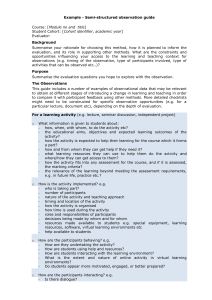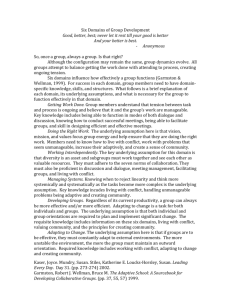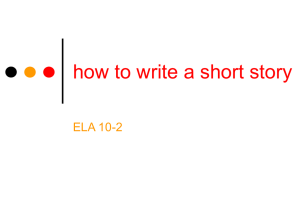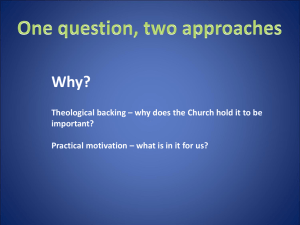Writing Strong Dialogue
advertisement
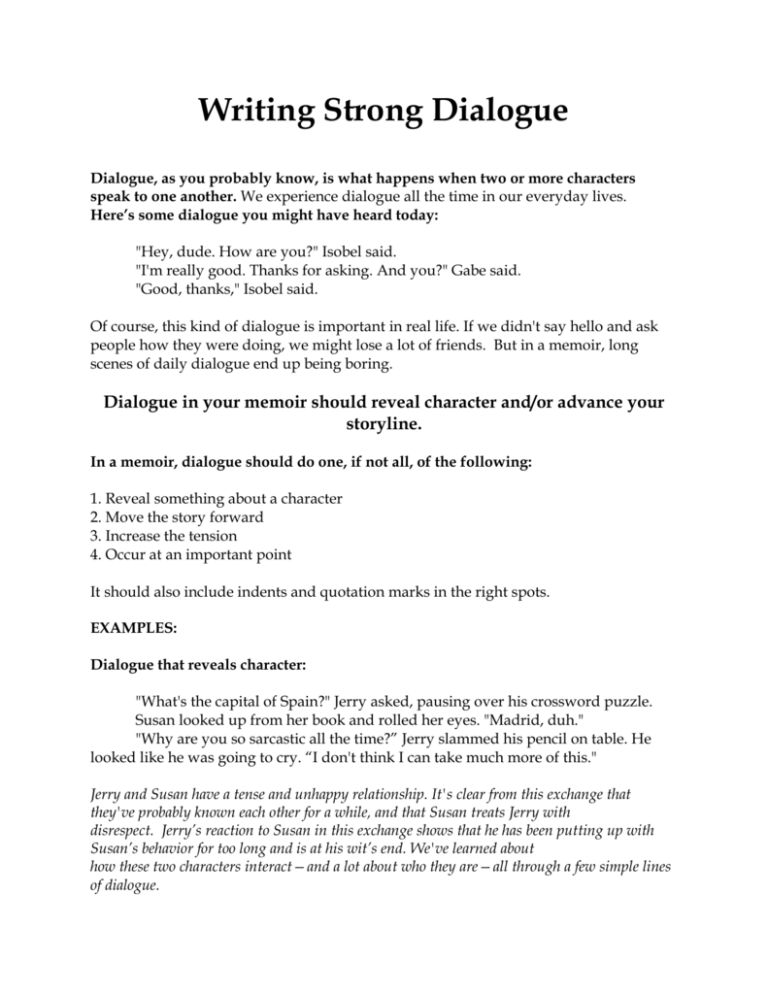
Writing Strong Dialogue Dialogue, as you probably know, is what happens when two or more characters speak to one another. We experience dialogue all the time in our everyday lives. Here’s some dialogue you might have heard today: "Hey, dude. How are you?" Isobel said. "I'm really good. Thanks for asking. And you?" Gabe said. "Good, thanks," Isobel said. Of course, this kind of dialogue is important in real life. If we didn't say hello and ask people how they were doing, we might lose a lot of friends. But in a memoir, long scenes of daily dialogue end up being boring. Dialogue in your memoir should reveal character and/or advance your storyline. In a memoir, dialogue should do one, if not all, of the following: 1. Reveal something about a character 2. Move the story forward 3. Increase the tension 4. Occur at an important point It should also include indents and quotation marks in the right spots. EXAMPLES: Dialogue that reveals character: "What's the capital of Spain?" Jerry asked, pausing over his crossword puzzle. Susan looked up from her book and rolled her eyes. "Madrid, duh." "Why are you so sarcastic all the time?” Jerry slammed his pencil on table. He looked like he was going to cry. “I don't think I can take much more of this." Jerry and Susan have a tense and unhappy relationship. It's clear from this exchange that they've probably known each other for a while, and that Susan treats Jerry with disrespect. Jerry’s reaction to Susan in this exchange shows that he has been putting up with Susan’s behavior for too long and is at his wit’s end. We've learned about how these two characters interact—and a lot about who they are—all through a few simple lines of dialogue. Dialogue that moves the story forward: The phone rang, and Joe picked it up. "Hello?" There was a moment of silence on the other end. "Is this Joe Simmons?" a male voice asked. "Yeah. Who is this?" The man paused. Jerry could hear him take a deep breath. "Joe, my name is Dave. I’m your brother.” "If this is a prank, it isn’t funny,” Joe said. “My family died a long time ago." “Not your whole family,” Dave confessed. Joe hung up the phone. Right away, we want to know who this Dave guy is, if he's telling the truth, and why Joe hung up on him. Basically, we want to know what will happen next. Dialogue that increases the tension: "Henry!" Justin shouted. "We've got to get away from here! The building's gonna blow!" "We've got to go back!" Henry screamed over the roar of the flames. "Why?" Henry pointed at the roof. "Carol is still up there!" Talk about tense. Are Henry and Justin going to save Carol? It's a matter of life and death here, and this little exchange of dialogue has us wanting more. DIALOGUE TAGS OTHER THAN “SAID”: Acknowledged Admitted Agreed Answered Argued Asked Barked Begged Bellowed Blustered Bragged Complained Warned Whispered Confessed Demanded Denied Giggled Hinted Hissed Howled Interrupted Laughed Lied Muttered Mumbled Whimpered Wondered Cried Nagged Pleaded Promised Questioned Remembered Replied Requested Sang Sighed Sobbed Threatened Whined Yelled Dramatic Dialogue Exercise Think about some of the fascinating conversations you've overheard recently, or seen on TV or in a movie. What kept you tuned in as those people chattered on and on? Chances are, you learned a great deal about those people in just a few short moments and were left wanting to know more. You can do that with your memoir dialogue, too! Start by writing a dramatic conversation, using two of the characters from one of your memoir drafts. Here are some suggestions to get you going: 1. Write a passage of dialogue that creates tension between you and another character. 2. Write a passage of dialogue where you reveal something to another character. 3. Write a passage of dialogue where character tells you something that will alter your view about something. 4. Write a passage of dialogue that shows how you and another character interact. 5. Write a passage of dialogue that shows something important about your relationship with another character. Each passage should be a few lines long, and each character should speak at least once.

